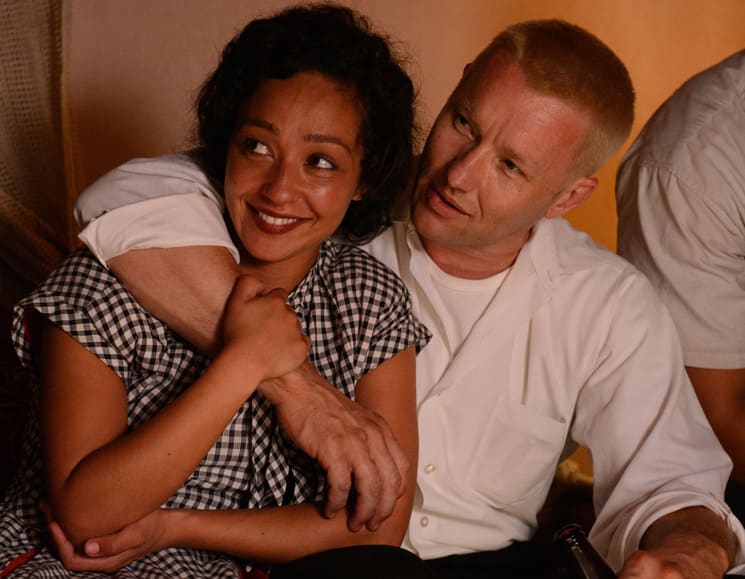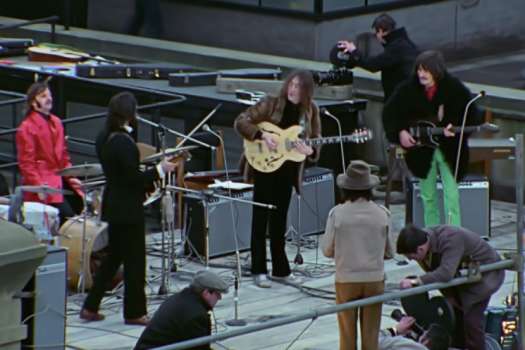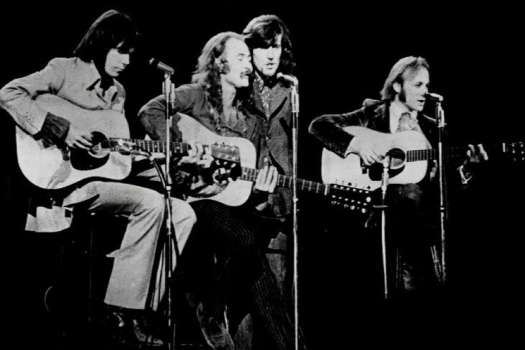The opening scenes of Loving slowly and tenderly paint a picture of the insular bubble of domestic bliss enveloping a couple, the aptly named Richard (Joel Edgerton) and Mildred (Ruth Negga) Loving, in Virginia. She nervously tells him she's pregnant; "Good," he says.
For a man of few words, it's about as excited as Richard gets. He lives a humble life as a hard-working and decent bricklayer and enjoys tuning up cars for drag races within the community. But when he decides to take the mother of his unborn child to Washington to get married, it inevitably leads to the puncture of their domestic bubble. All because she's black and he's white. In 1958, that's illegal.
At a time when biographical films so often seem to manipulate historical facts for dramatic purposes, there are barely even enough narrative developments here to imagine that anything has been exaggerated for effect. The couple are apprehended shortly after their marriage and forced to leave the state for 25 years or risk being imprisoned for a year. Their life together out of state and away from their families includes raising a few children in a cramped house, but when one of their sons is hit by a car while playing in the streets, Mildred insists that it's time to move back home, where there's more space for them to play.
By the time an inexperienced and slightly overwhelmed lawyer from the ACLU (Nick Kroll, acquitting himself quite nicely in a mostly dramatic role) responds to a letter Mildred wrote and agrees to help them out, it's already over halfway into the film. The accompanying press surrounding the case (including a photo shoot for Life magazine with a genial photographer played by Michael Shannon) makes Richard especially uncomfortable, and exposes the couple to the kind of attention that can potentially put them in more danger.
In lesser hands, Loving might have featured the kind of ham-fisted courtroom drama where the accused and their lawyers deliver grandstanding speeches about the nature of equality while stereotypical racists plot to keep the two lovers apart, but writer-director Jeff Nichols (Mud, Midnight Special) has too much restraint for that. Instead, he focuses on the quiet moments between the pair as, over the years, the slow march of justice plods on, not to mention on the ever-present paranoia that the next car zooming down the dusty road to their house might be the one that tears them apart again.
The laconic pacing and lack of traditional tension might make the two-hour running time seem a little excessive, but it helps to humanize the historical impact of the case. Edgerton and Negga do masterful work without saying all that much, as they continue to oppose the unjust law simply by persevering and supporting each other in times of need and weakness, rather than with bluster. We're reminded that change is so often enacted not because of any righteous crusade but only because a senseless injustice happens to be standing in someone's own path to happiness.
It's impossible to watch the film and not consider the current state of the U.S. in the wake of Donald Trump being elected president. With xenophobia and intolerance rearing their ugly heads so prevalently yet again in the country, Loving doesn't seem nearly as far removed from the present as it should. But it serves as welcome reminder that blind hatred will never truly be able to extinguish the purity of love or halt the wheels of progress from moving forward — however slowly.
(Universal)For a man of few words, it's about as excited as Richard gets. He lives a humble life as a hard-working and decent bricklayer and enjoys tuning up cars for drag races within the community. But when he decides to take the mother of his unborn child to Washington to get married, it inevitably leads to the puncture of their domestic bubble. All because she's black and he's white. In 1958, that's illegal.
At a time when biographical films so often seem to manipulate historical facts for dramatic purposes, there are barely even enough narrative developments here to imagine that anything has been exaggerated for effect. The couple are apprehended shortly after their marriage and forced to leave the state for 25 years or risk being imprisoned for a year. Their life together out of state and away from their families includes raising a few children in a cramped house, but when one of their sons is hit by a car while playing in the streets, Mildred insists that it's time to move back home, where there's more space for them to play.
By the time an inexperienced and slightly overwhelmed lawyer from the ACLU (Nick Kroll, acquitting himself quite nicely in a mostly dramatic role) responds to a letter Mildred wrote and agrees to help them out, it's already over halfway into the film. The accompanying press surrounding the case (including a photo shoot for Life magazine with a genial photographer played by Michael Shannon) makes Richard especially uncomfortable, and exposes the couple to the kind of attention that can potentially put them in more danger.
In lesser hands, Loving might have featured the kind of ham-fisted courtroom drama where the accused and their lawyers deliver grandstanding speeches about the nature of equality while stereotypical racists plot to keep the two lovers apart, but writer-director Jeff Nichols (Mud, Midnight Special) has too much restraint for that. Instead, he focuses on the quiet moments between the pair as, over the years, the slow march of justice plods on, not to mention on the ever-present paranoia that the next car zooming down the dusty road to their house might be the one that tears them apart again.
The laconic pacing and lack of traditional tension might make the two-hour running time seem a little excessive, but it helps to humanize the historical impact of the case. Edgerton and Negga do masterful work without saying all that much, as they continue to oppose the unjust law simply by persevering and supporting each other in times of need and weakness, rather than with bluster. We're reminded that change is so often enacted not because of any righteous crusade but only because a senseless injustice happens to be standing in someone's own path to happiness.
It's impossible to watch the film and not consider the current state of the U.S. in the wake of Donald Trump being elected president. With xenophobia and intolerance rearing their ugly heads so prevalently yet again in the country, Loving doesn't seem nearly as far removed from the present as it should. But it serves as welcome reminder that blind hatred will never truly be able to extinguish the purity of love or halt the wheels of progress from moving forward — however slowly.




